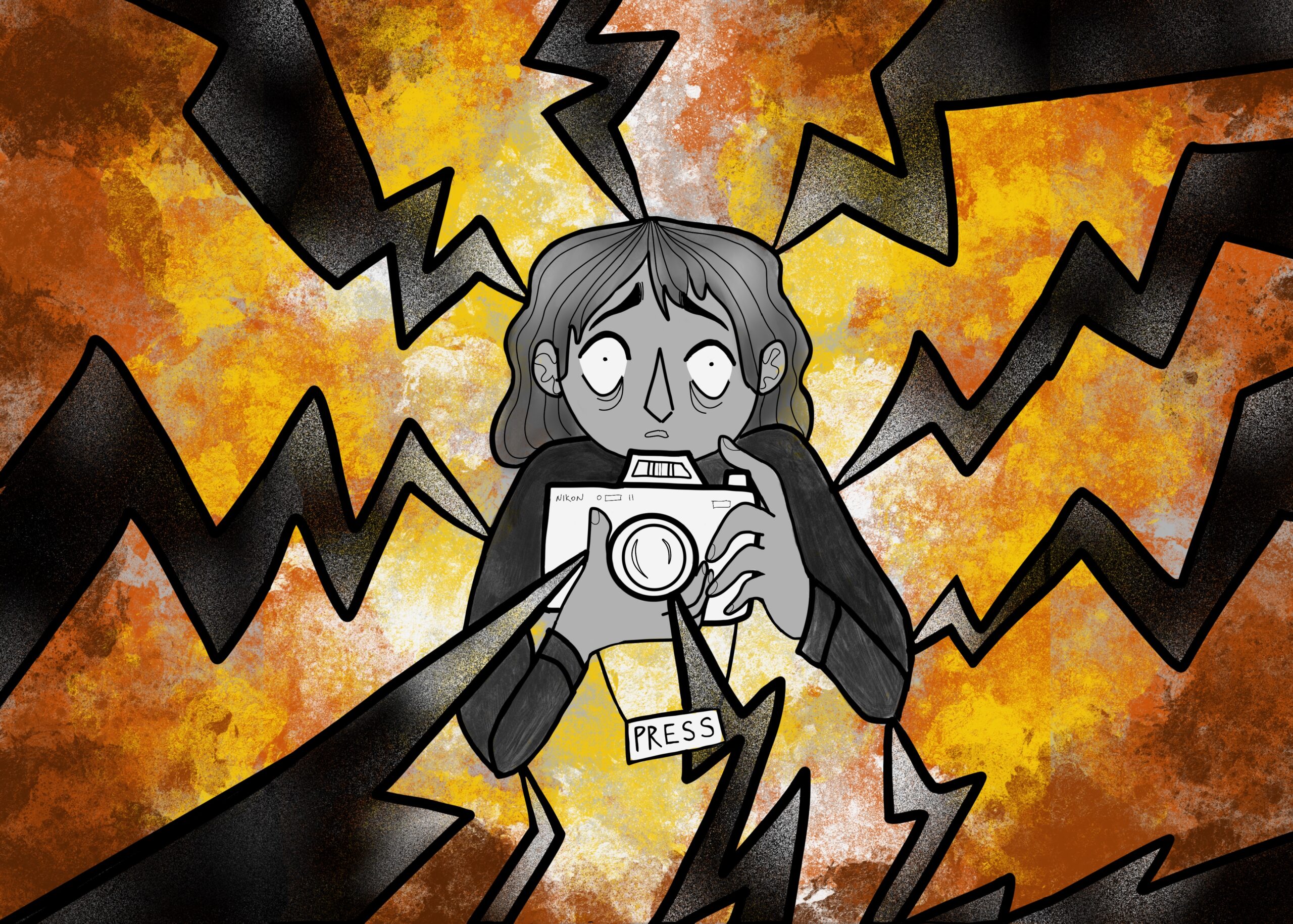Journalism students often juggle multiple responsibilities while striving to meet deadlines and uphold journalistic standards. They face many challenges such as ethical dilemmas, navigating the fast-paced and competitive nature of journalism, and encountering potentially distressing situations while learning how to cover stories.
Mental health challenges are common, especially in college. In the spring of 2023, the American College Health Association conducted a national survey of more than 55,000 undergraduate students and found that 76% of respondents reported experiencing moderate to serious psychological distress.
Studies have found that 80% to 100% of journalists have been exposed to traumatic events while on the job, according to the Dart Center for Journalism and Trauma. Traumatic events like murder, mass casualties, wars and disasters.
Journalists are at high risk for problems like depression, anxiety, sleep and eating disorders, burnout, and post-traumatic stress disorder. They cover topics that include conflicts, violence, refugee stories, climate and natural disasters, and human stories. Their work often exposes them to intense and distressing situations. This includes student journalists who are already reporting for their classes and are likely reading and engaging in news at a higher rate than their peers.
Recognizing that helping others effectively through journalism requires maintaining your emotional health, this will help enhance your ability to support others effectively.
The culture within journalism can sometimes discourage journalists from seeking help for their mental health struggles. There is a stigma associated with admitting vulnerability or seeking support because journalists are often expected to be resilient and tough-minded in the face of adversity. This can prevent journalists from accessing the resources and assistance they need to address their mental health.
The stigma around being vulnerable affects journalists regardless of their student status. Both groups may hesitate to seek assistance for mental health concerns, fearing that acknowledging struggles could be seen as a sign of weakness or hinder one’s career.
Additionally, the fast-paced nature of the industry may overshadow discussions about mental health, with priority given to meeting deadlines and producing content. There is a lack of awareness about the specific mental health challenges faced by student journalists. Without understanding the unique stressors and pressures they encounter, it’s easy for their mental health to be overlooked.
It’s essential to start conversations about the mental health of student journalists to raise awareness, break down stigma and ensure they receive the support they need to thrive both personally and professionally.
As early career journalists move from college to the professional world, they may encounter tougher challenges. College environments often have more awareness and acceptance of mental health issues, while workplaces may bring added pressure to perform and fit in, which could make existing mental health struggles worse.
Given these challenges, colleges and universities must prioritize mental health support services specifically tailored to the needs of student journalists. This could include providing access to counseling services, promoting mental health awareness and education, offering training on coping strategies and self-care practices, and fostering a supportive and inclusive campus culture where students feel comfortable seeking help when needed. By achieving this, postcollege journalists would have improved mental health coping mechanisms.
Some news can be disturbing and disheartening, but we students inspire calls to action from various stakeholders, which will eventually include government officials, community leaders and members of the public. By shining a light on important issues and holding those in power accountable, we will play a crucial role in driving positive change.
Catherine Pineda is a journalism major from Berwyn.







Be First to Comment